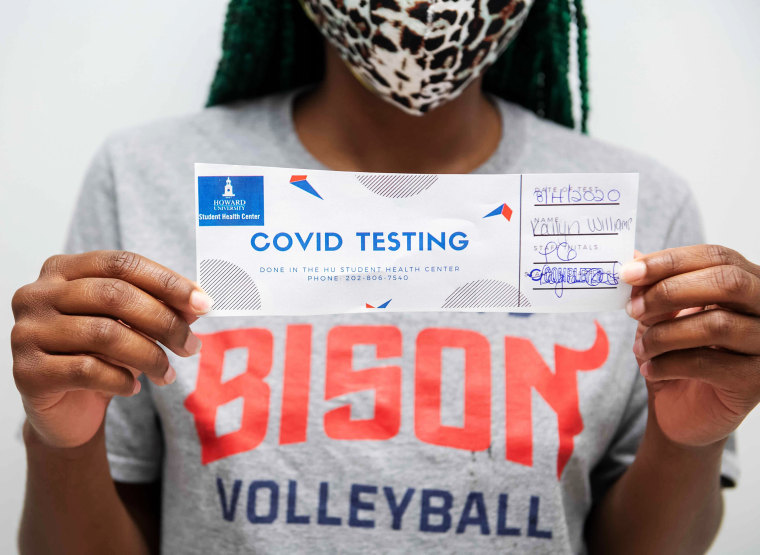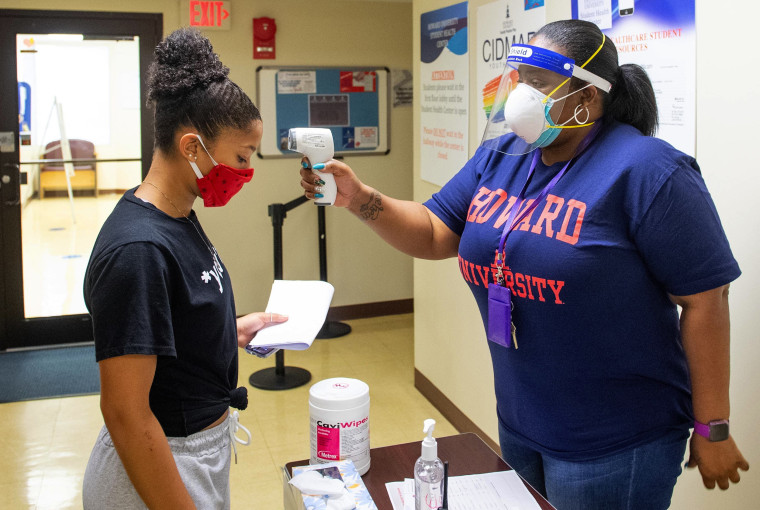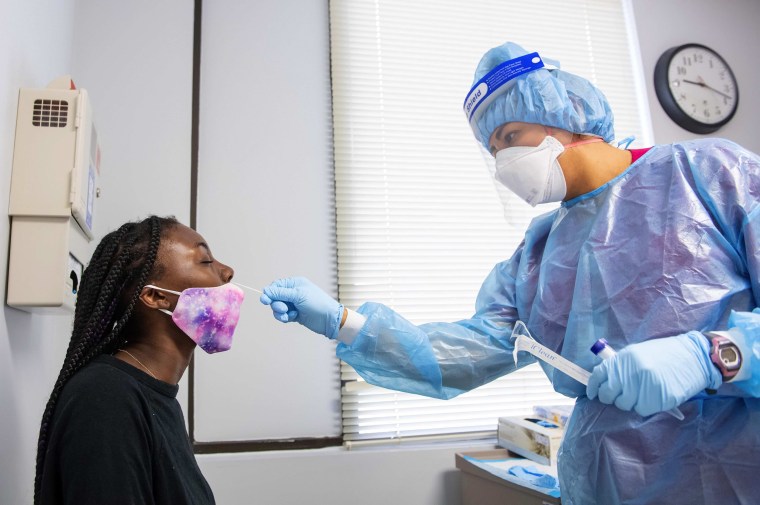Students at America’s historically Black colleges and universities will have access to free COVID-19 tests this fall, courtesy of a donation worth $15 million from the lab equipment company Thermo Fisher Scientific.
“It’s a game-changer,” said Dr. Hugh Mighty, dean of the Howard University College of Medicine in Washington. “This is a huge undertaking that could not be done without help.”
Thermo Fisher, which serves medical providers and academia, is donating diagnostic instruments, test kits and related supplies for The Just Project, named for the pioneering early 20th century Black biologist Dr. Ernest Everett Just. The company’s initiative will also provide technical support to colleges to establish or build labs to process regular COVID-19 tests.
“The need for testing for Black students is really important,” Mighty said. “We are the most vulnerable, and the numbers show that even to be the case with college-age students.”

According to the Centers for Disease Control and Prevention, COVID-19 diagnoses among adults 18 to 29, which includes traditionally college-age people, are on the rise.
“So this is huge,” Mighty said. “Frankly, most schools do not have the ability or resources to test each of their students. It’s a cost of about $100 per student. That’s an extraordinary amount of money when you consider the number of students we’re including.”
Howard, Morehouse School of Medicine in Atlanta, Meharry Medical College in Nashville, Xavier University of Louisiana and Hampton University in Virginia are the first HBCUs to receive the donations. A spokesperson from Thermo Fisher said more HBCUs will be invited to join the program in the coming weeks and months.
"Our first priority is to ensure a safe and healthy environment on our campuses," said Dr. Valerie Montgomery Rice, president and dean of Morehouse School of Medicine. "The support we receive . . . through The Just Project allows us to offer easy access to COVID-19 testing that is so important to getting our students back to school safely."
Coronavirus testing will take place in campus laboratories and testing stations. HBCUs have committed to use the donated equipment solely to offer COVID-19 testing to HBCU faculty, staff and students at no cost.
“We have been involved in the COVID-19 fight since November,” said Fred Lowery, senior vice president and president for life sciences solutions and laboratory products at Thermo Fisher. After the initial rush of testing millions a week in the early days of the pandemic, Lowery said, “thoughts focused on how we would get back to life. For us, those thoughts included how we could help our Black colleges and university students get back on campus safely as we battle the pandemic.”

Some campuses have returned to a full-time, on-campus schedule, while others are splitting between virtual learning and in-class studies. All are eligible for the complimentary testing.
“This is an important gesture. The Just Project gives us the capacity, in an affordable way, to protect our students during this pandemic,” said Xavier President Reynold Verret.
Verret said the old social cues followed on his campus — like greeting others with a kiss on both cheeks as is custom in New Orleans — had to stop, but the campus community is adapting. “There is a sense of loss with all of this. But … our students will wear masks and work hard at social distancing.”
Aside from The Just Project, Bloomberg Philanthropies last week donated $100 million to the four HBCU medical institutions — Meharry, Morehouse, Charles Drew University of Medicine and Science in Los Angeles, and Howard University College of Medicine — to help students with tuition. The goal is to increase the number of Black doctors in the U.S. (where only 5 percent of practicing doctors are Black) to address the number of marginalized, underserved patients.
“COVID-19 has been especially devastating for the Black community, and the scarcity of Black doctors practicing in Black communities is one reason for it,” Michael Bloomberg, the former New York mayor and founder of Bloomberg Philanthropies and Bloomberg LP, said in a statement.
During his run for the 2020 Democratic presidential nomination, Bloomberg announced the Greenwood Initiative to augment Black family generational wealth to close the country’s vast wealth gap. Bloomberg said the latest donations are “just a first step” at fulfilling his pledge.
Verret said: “The larger piece is it will increase the number of students who come out of our schools and go into medical school. The cost of medical school needs to be more affordable.
“But this will help us grow the number of talented doctors from all ethnic backgrounds.”

